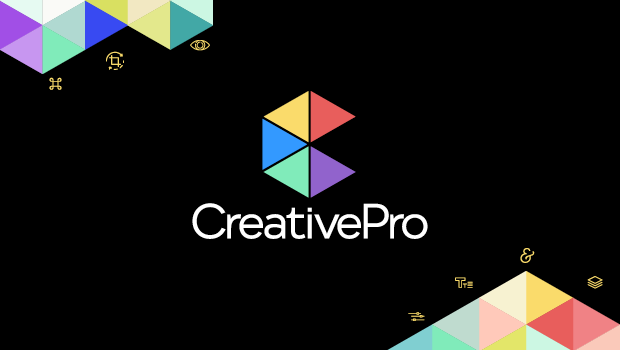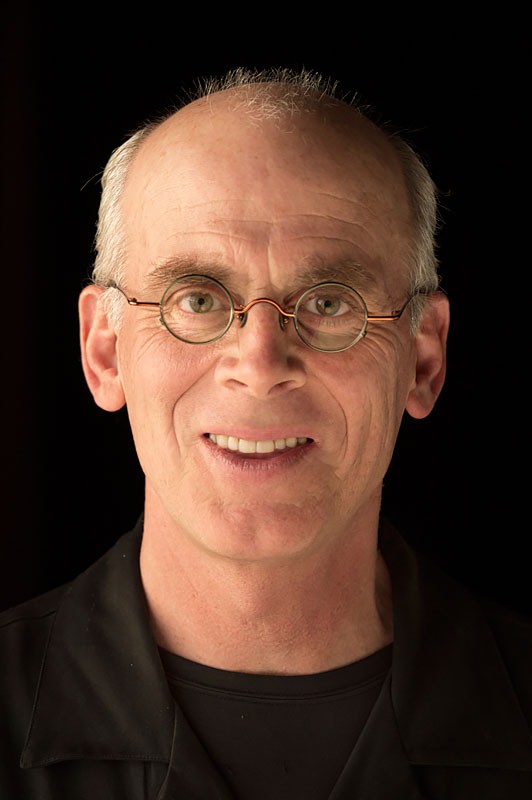Teaching Tomorrow's Creatives

Not too long ago, I was invited to make a presentation at our neighborhood elementary school’s Career Day. I happily accepted the invitation, as I always enjoy spending time in the local schools.
My only problem with Career Day is trying to define My Career. I am still not sure what to tell people — especially young people — what I do for a living.
I took copies of the books I have written, brochures I have produced, photographs I have taken, and I brought along my digital projector to make a short presentation for the students. I gave a presentation about My Career.
Butcher, Baker…Consultant?
In my estimation there is a shortage of entrepreneurial encouragement in the public schools. I think that schools prefer to help students pick careers in traditional roles — butcher, baker, candlestick maker. I have seldom seen a school program that encouraged entrepreneurship, and in my opinion society in general could profit from a change in career counseling.
There are millions of self-employed people in our society. In the creative professions especially there is an immense opportunity for individuals, for small studios, for workshops of people to create the massive amount of art and design and photography that makes the gears of commerce turn.
But our schools seldom tell students that there’s a career to be had working in small offices, producing art. The reasons are numerous, and the most likely reason is that institutions don’t understand creative professions.
I remember when I brought the first Apple IIe computer into my office back in 1981. One of my clients came by to drop off a job for typesetting. He saw me in my office typing on the computer keyboard and exclaimed, “He’s playing computer games!”
I was not playing computer games: I was writing the first part of the assembly language code to drive our typesetting machine with the Apple IIe, a move away from paper-punch tape. On completion of this work we were able to edit copy before it was typeset, save it onto floppy disks, and then correct the files without punching new paper tape. (The downside was that we didn’t have bags of punch-tape confetti for Mardi Gras, but we learned to get over that.) It was an innovative use of computers to save time and work more efficiently.
That, too, is part of My Career.
Self-Employed Globetrotter
So, when I visited the school for Career Day, I talked about self-employment, starting and running a business – which I did for almost two decades – and about self employment after that, this time in the form of consulting and writing and helping companies solve problems.
I told the students that the prerequisite for being a consultant is to be an expert at something, and that the road to becoming an expert almost always involves having a career where pioneering takes place. I recommended reading — voracious reading — to keep on top of the subject and to hone skills.
I told them about my use of computers and cameras and videotape, and how companies send me things to try before they go to market. I told them about beta testing and writing technical papers and making CD-ROMs with educational materials on them.
And I mentioned that I had recently received a camera to test, one that the public has not seen yet. This seemed to pique their imaginations more than anything else I said.
What does it do? How big is it? Will it be in stores soon? Can you keep it?
The students also loved my QuickTime panoramic photos, a sideline interest of mine. When I travel, be it to India, England, Ireland or Brazil, I take panoramic photos. These have become the core of a portfolio of digital images that are both beautiful and marketable. The students loved the fact that you can navigate around in a panoramic image and see behind yourself.
And, when I left, I felt that I had made a good impression on these young people, by telling them about My Career.
Your Techno Buddy
A lot of what I said at Career Day was for the benefit of the teachers present, those who might have an opportunity to steer young minds toward entrepreneurship. This, I believe, might make a difference because the teachers saw a person who has succeeded in a number of fields, and can show the fruits of his labor to young people.
A few days later I received a manila envelope in the mail. Inside was a set of thank you letters from the students. Over the years I have collected a stack of these, and I really treasure them. These were even better than others from previous Career Days.
One student, who obviously has insider knowledge, wrote:
Dear Mr. Lawler,
I really enjoyed the presentation you gave to our class.
Now you may be surprised to know that I am a technical wizard, but I know almost nothing about digital cameras, so I was not amazed at the technology, but I was at the camera. You may be surprised, however, that Sony, Nintendo and Sega are working on digital cameras for their next game machines. These shall be used in a number of innovative ways, but I don’t think I should get into detail yet.
Your Techno Buddy,
Brian Colby
One other young man wrote, “Hello, it’s me Kevin. I just wanted to thank you for taking your time to come to are [sic] school. You are very interesting. I want to learn to be what you are. I think it’s really cool that you get to travel around the world…”
Another wrote about how he enjoyed the presentation, and finished with these words: “You don’t know how you changed my life.”
Wow! This is flattering stuff. And this is why I am so pleased to participate in Career Day. Even if I don’t have a clear idea of my own profession, I feel great if I can influence others to take a broader view of potential professions. I have found that I can be a graphic arts consultant and a baker part-time, perhaps with a hobby making candlesticks on the side.
If I have caused even one of the students to consider self-employment, or a career in creative arts, then I have succeeded in my life’s work.
Your Techno Buddy,
Brian Lawler
This article was last modified on January 6, 2023
This article was first published on April 14, 2000





Brian Lawler is to be commended for reaching out to students on Career Day. Describing what you “do” in a creative-related profession can be extremely difficult to convey. Many people perceive creative based professions as “play”. In many ways, it is. I have a passion for my work. If it wasn’t my job, it would be my hobby. Granted, some of the work is grunt work that pays the bills, but it’s the approach and attitude that can make a job exciting and rewarding. A creative approach can be taken on everything you tackle. That’s the challenge…to create a unique perspective.
Many schools aren’t aware of the options for careers in creative fields. It’s an ambiguous gray area.
Many students aren’t aware of the range of creative-based careers until high school or college unless they have an avid interest in art or art-related fields. Introducing information about creative felds at an early age can inspire fledglings to pursue careers they didn’t know existed.
My 17 years of self-employment taught me many things, not least that my capabilities far exceeded my own expectations (what could be more empowering?) and that business can be a highly satisfying creative endeavor. Lawler’s contribution is so valuable because students (and teachers) can see and feel the energy generated by a creative, self-actualizing person. Their own dreams might not seem so farfetched after that. Career teachers rarely have that experience to offer their students.
Use larger font for text!!!
You have the smallest font I have ever
seen on the internet!
It’s a very important thing…it’s literally the crossroads of two worlds…when people in the digital media business can talk to students or school system people. Recently I was invited by Apple to speak at their Digital High Schools event before school administrators. What I took away from that is that NOW is the time: professionals should get into the schools and make them aware that the trajectory of computing careers is shifting from data-crunching, wordprocessing and spreadsheet, to higher-paying, more rewarding and more technically demanding content creation. The business-app/Microsoft-centric approach will let the students down in a big way unless schools start now to aim ahead of this curve.
I agree with Brian’s assessments that today’s schools do not teach how to survive in the business world. Any good corporate member should understand the financial and creative decisions a business owner has to make. Only then can he/she communicate intelligently their concept, as well as the corporate mission statement. In printing, there is an expression, “Getting ink under your fingernail”. To effectively produce, create, manage, and administrate in today’s world, you must understand the entire process, not just your part in it.
I like Lawler’s point of view.